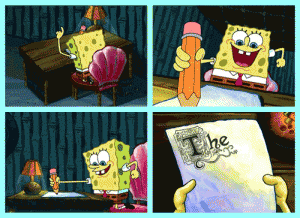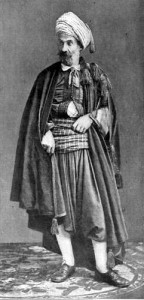The archaeology of historical documents can be illuminating in our search to understand human history – how identities are created and maintained through acts of documentation.
During the last eighty years of French colonial rule in Algeria, laws that granted Northern Algerian Jews access to French citizenship were extended to the
Southern Sahara Algerian Jews, who had previously been denied this legal distinction. When the Sahara Jews were granted permission to immigrate to France, problems of documentation arose as the community had been overlooked for eighty years – there was no “official” documentation to legitimize their ancestry or to monitor their futures in the French governmental system. The Northern Algerian Jews had been developing a very different identity than the Sahara Jews for 80 years, even though they were the ‘same people.’
The French forged a register of the Sahara Jews’ names, which marked the first cross-cultural struggle over documentation and the identities that it would be creating and solidifying. The French wanted to control and monitor the movements of the Jews who would be entered into their system, and The Sahara Jews wanted to control what was documented about them – often attempting to ‘purge’ their historical Jewishness by creating Europeanized names for themselves. It was an example of the power of written historical documents in the creating, reshaping and maintaining of cultural and national identities.
The end of the war of independence came before the registry was completed, however, and throughout the ensuing years the Jewish community in Algeria was faced with a dilemma as their community collapsed. Where would they immigrate to – France, or Israel? Where did they ‘belong’ legally, geographically, historically? The French government, Israel and Algeria were suddenly fighting over the forged registry that would dictate who belonged where based on rather arbitrary categories of identity. Who had access to the Algerian Jews’ historical documents – did the France or Israel have the right to store them, keep them, or utilize them?
Archaeology, with its unbiased scientific approach to studying human pasts, can help us begin to answer questions such as these. We know that archaeology is not all about digging in the dirt: the archaeological analysis and preservation of historical documents and artifacts can help us understand how and why identities are created and reshaped throughout history.



